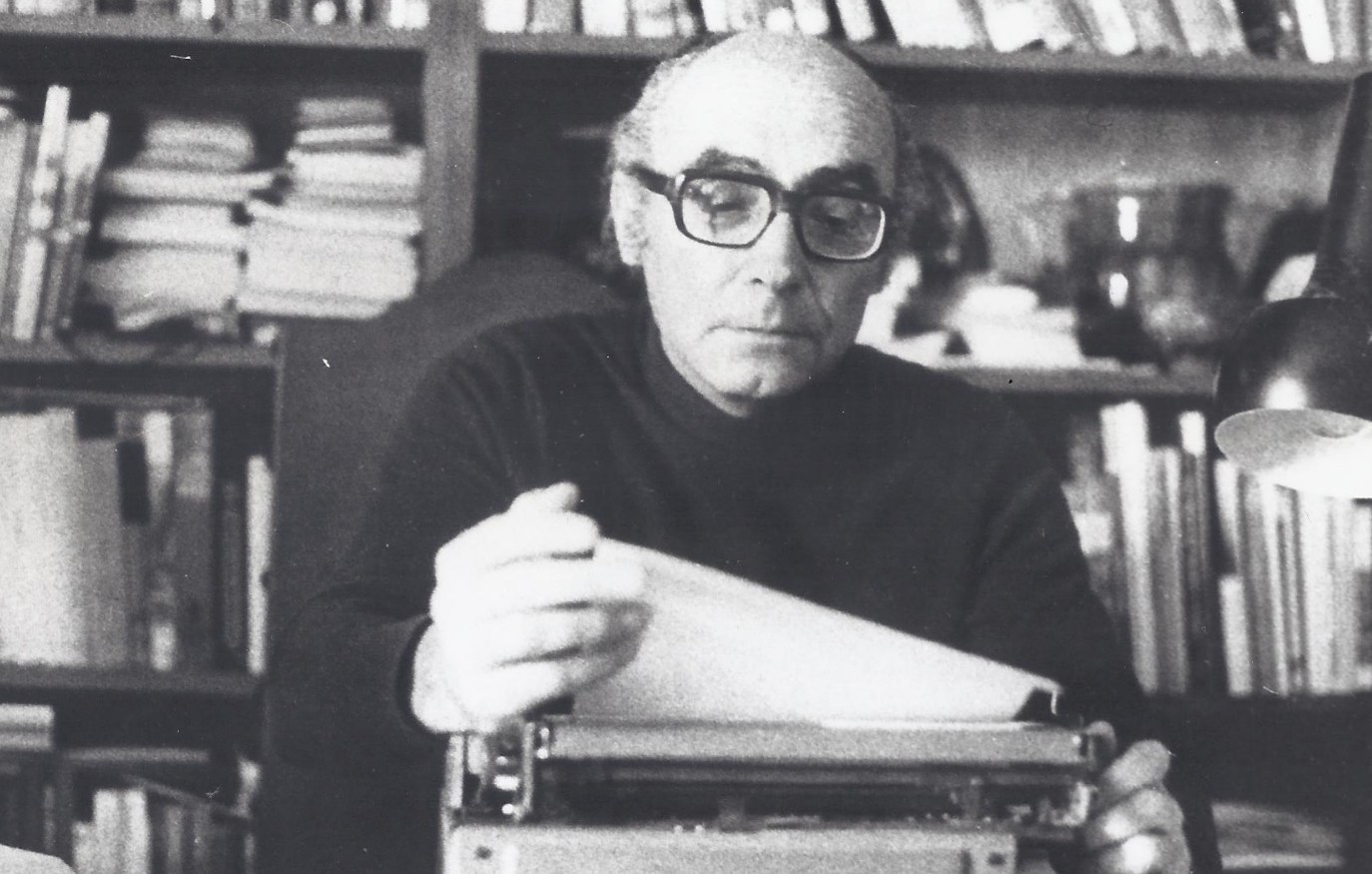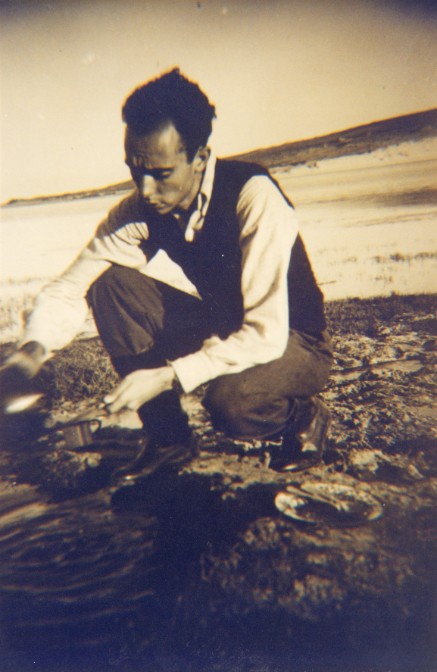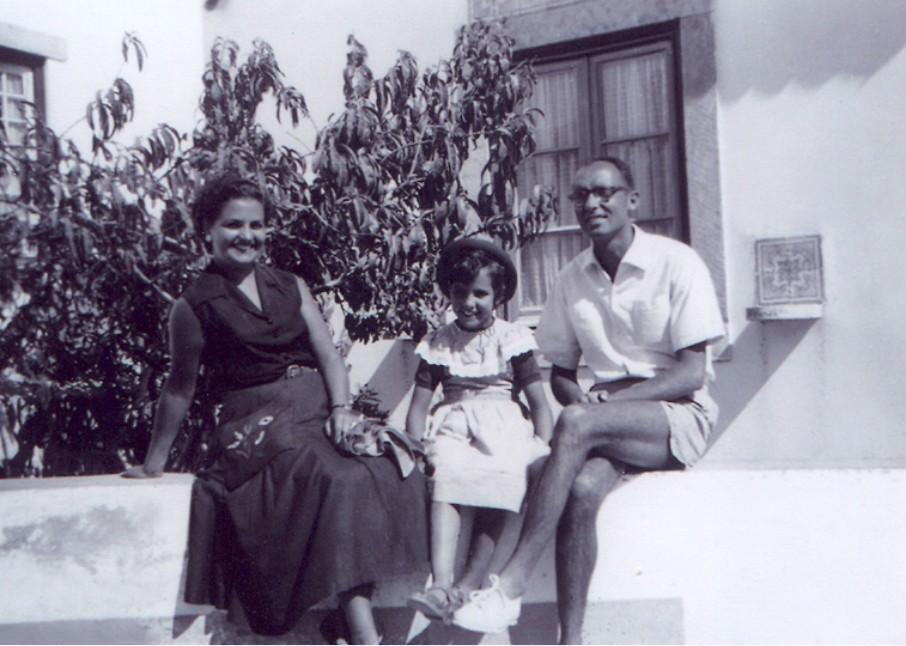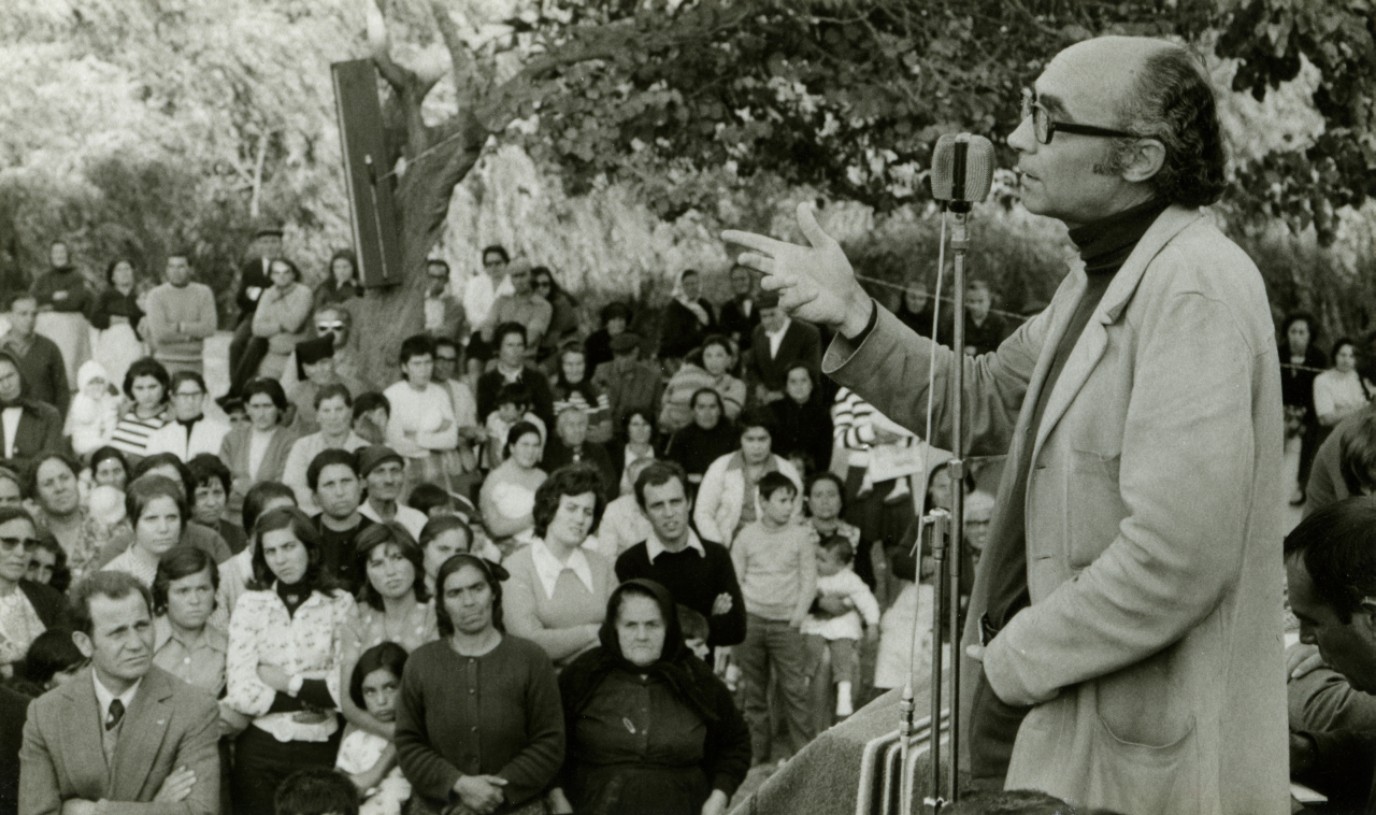Biography

José Saramago, 70s ©FJS Archive/Reserved Rights
Autobiography
I was born in a family of landless peasants, in Azinhaga, a small village located in the province of Ribatejo, on the right bank of the river Almonda, some hundred kilometers northeast of Lisbon. My parents were called José de Sousa and Maria da Piedade. José de Sousa would also have been my name if the civil registry official, on his own initiative, had not added the nickname for which my father's family was known in the village: Saramago. (It should be clarified that saramago is a spontaneous herbaceous plant, whose leaves, in those times, in times of need, served as food in the kitchen of the poor). Only when I was seven, when I had to present an identification document at primary school, did it become known that my full name was José de Sousa Saramago… However, this was not the only identity problem I was faced with in the baby crib. Although I came into the world on November 16, 1922, my official documents state that I was born two days later, at 18: it was thanks to this small fraud that the family escaped payment of the fine due to the lack of declaration of birth within the legal deadline. .
Perhaps because he participated in the Great War, in France, as an artillery soldier, and knew other environments, different from the village, my father decided, in 1924, to leave the field work and move with his family to Lisbon, where he began to exercise the profession of public security police, for which “literary qualifications” (common expression then…) were no longer required than reading, writing and telling. A few months after we settled in the capital, my brother Francisco, who was two years older than me, would die. Although the conditions in which we lived had improved somewhat with the change, we would never come to know a real economic breakthrough. I was 13 or 14 years old when we finally lived in a house (very small) just for us: until then we had always lived in parts of the house, with other families. During all this time, and until the age of majority, there were many, and often prolonged, periods in which I lived in the village with my maternal grandparents, Jerónimo Melrinho and Josefa Caixinha.



I was a good student in elementary school: in the second class I already wrote without spelling mistakes, and the third and fourth classes were done in one year. I then moved on to high school, where I stayed for two years, with excellent grades in the first, much less good in the second, but esteemed by colleagues and teachers, to the point of being elected (I was 12 years old…) treasurer of the academic association… However, my parents had come to the conclusion that, due to lack of means, they could not continue to keep me in high school. The only alternative that was offered would be to enter a vocational school, and so it was done: for five years I learned the trade of a mechanical locksmith. The most surprising thing was that the school's study plan at that time, although obviously oriented towards technical professional training, included, in addition to French, a subject of Literature. As I had no books at home (my books, bought by me, even with money borrowed by a friend, I was only able to have them at the age of 19), it was Portuguese school books, due to their “anthological” character, that opened my doors to literary enjoyment: even today I can recite poetry learned in that distant time. After finishing the course, I worked for about two years as a mechanical locksmith in an auto repair shop.
It was also around that time that he began to attend a public library in Lisbon during the night hours of operation. And it was there, without help or advice, only guided by curiosity and the desire to learn, that my taste for reading developed and refined.
When I got married, in 1944, I had already changed my activity, I started to work in a Social Security organization as an administrative employee. My wife, Ilda Reis, then a typist at Caminhos de Ferro, would become, many years later, one of the most important Portuguese recorders. I would pass away in 1998. In 1947, the year of the birth of my only daughter, Violante, I published the first book, a novel I titled The Widow, but for editorial convenience it would come out with the name Terra do Pecado. I wrote yet another novel, Clarabóia, which remains unpublished until today, and I started another one, which did not go beyond the first pages: it would be called O Mel and Fel or perhaps Luís, son of Tadeu ... The issue was resolved when I left the project: it was starting to become clear to me that I didn't have to say anything worthwhile. For 19 years, until 1966, when I published Os Poemas Possíveis, I was absent from the Portuguese literary world, where there must have been very few people who noticed my absence.

With Ilda Reis and her daughter Violante, 50s ©FJS Archive
For political reasons I was unemployed in 1949, but thanks to the goodwill of my former teacher at the time of technical school, I was able to find an occupation in the metallurgical company of which he was an administrator. In the late 1950s, I started working at a publishing company, Estúdios Cor, as responsible for production, thus returning, but not as an author, to the world of letters that I had left years before. This new activity allowed me to get to know and create friendly relationships with some of the most important Portuguese writers of that time. To improve the family budget, but also for pleasure, I started, from 1955, to dedicate part of my free time to translation work, an activity that would continue until 1981: Colette, Pär Lagerkvist, Jean Cassou, Maupassant, André Bonnard, Tolstoy, Baudelaire, Étienne Balibar, Nikos Poulantzas, Henri Focillon, Jacques Roumain, Hegel, Raymond Bayer were some of the authors I translated. Another parallel occupation, between May 1967 and November 1968, was that of a literary critic. However, in 1966, he published Os Poemas Possíveis, a poetic collection that marked my return to literature. This book was followed, in 1970, by another collection of poems, Probably Alegria, and then, in 1971 and 1973 respectively, under the titles Deste Mundo e do Outro and A Bagagem do Viajante, two collections of chronicles published in the press, which criticism has considered essential to the complete understanding of my later work. Having divorced in 1970, I started a relationship, which would last until 1986, with the Portuguese writer Isabel da Nóbrega.
I left the publisher at the end of 1971, worked for the next two years in the afternoon Diário de Lisboa as coordinator of a cultural supplement and as an editorialist. Published in 1974 under the title The Opinions that DL had, these texts represent a very accurate “reading” of the last times of the dictatorship that would come to be overthrown in April of that year. In April 1975 I started to act as deputy director of the morning newspaper Diário de Notícias, a position that I held until November of that year and that I was dismissed as a result of the changes caused by the political-military coup of the 25th of that month, which put an end to the revolutionary process. Two books mark this time: The Year of 1993, a long poem published in 1975, which some critics already considered announcing the works of fiction that two years later would begin with the novel Manual of Painting and Calligraphy, and, under the title Os Apontamentos , the articles of political content that I published in the newspaper of which I had been director.
Without a job once more and, considering the circumstances of the political situation that was then going on, without the slightest possibility of finding it, I made the decision to dedicate myself entirely to literature: it was time to know what could really be worth as a writer. In early 1976, I settled in Lavre, a rural town in the province of Alentejo, for a few weeks. It was this period of study, observation and recording of information that gave rise, in 1980, to the novel Levantado do Chão, in which the way of narrating that characterizes my novelesque fiction is born. Meanwhile, in 1978, he had published a collection of short stories, Objecto Almost, in 1979 the play A Noite, which followed, a few months before the publication of Levantado do Chão, a new theatrical work, What Will I Do With This Book ?. With the exception of another play, entitled The Second Life of Francisco de Assis and published in 1987, the 1980s was entirely dedicated to the novel: Memorial do Convento, 1982, The Year of the Death of Ricardo Reis, 1984, A Jangada de Pedra, 1986, History of the Siege of Lisbon, 1989. In 1986 I met the Spanish journalist Pilar del Río. We were married in 1988.

José Saramago in the 70s ©FJS Archive/Reserved Rights
As a result of the censorship exercised by the Portuguese Government on the novel The Gospel according to Jesus Christ (1991), vetoing its presentation to the European Literary Prize under the pretext that the book was offensive to Catholics, we transferred, my wife and I, in February 1993, our residence for the island of Lanzarote, in the Canary archipelago. At the beginning of that year I published the play In Nomine Dei, still written in Lisbon, from which the libretto of the opera Divara would be extracted, with music by the Italian composer Azio Corghi, premiered in Münster (Germany), in 1993. This was not my first collaboration with Corghi: the music of the opera Blimunda, about the novel Memorial do Convento, premiered in Milan (Italy) in 1990, is also his own. In 1993 I started writing a diary, Cadernos de Lanzarote, of which five volumes are published.
In 1995 I published the novel Blindness and in 1997 All the Names and The Tale of the Unknown Island.
In 1995 I was awarded the Camões Prize, and in 1998 the Nobel Prize for Literature.
As a result of the awarding of the Nobel Prize, my public activity has increased. I traveled across five continents, offering conferences, receiving academic degrees, participating in meetings and congresses, both of a literary, social and political nature, but, above all, I participated in actions that demand the dignification of human beings and the fulfillment of the Declaration of Human Rights by achieving of a more just society, where the person is an absolute priority, and not the trade or the struggles for a hegemonic power, always destructive.
I believe I have worked hard over the past few years. Since 1998, I have published Political Sheets (1976-1998) (1999), The Cave (2000), The Biggest Flower in the World (2001), The Double (2002), Seeing (2004), Don Giovanni or the Dissolute Absolved (2005), Death at Intervals (2005) and The Small Memories (2006). Now, this autumn of 2008, a new book will appear: The Elephant's Journey, a short story, a narrative, a fable.
In 2007, it decided to create a Foundation with my name in Lisbon, which assumes, among its main objectives, the defense and dissemination of contemporary literature, the defense and the requirement to comply with the Declaration of Human Rights, in addition to of the attention that we owe, as responsible citizens, to the care of the environment. In July 2008, a protocol for the granting of Casa dos Bicos, in Lisbon, was signed for the headquarters of the José Saramago Foundation, where it will continue to intensify and consolidate the objectives set out in its Declaration of Principles, opening doors to living projects of cultural unrest and transformative proposals for society.
Note - After The Elephant's Journey, José Saramago wrote Cain, The Notebook and The Notebook II, published in 2009 and which he did not add to his Autobiography.
Posthumously, Skylight (completed in 1953 and published in 2011) and Halberds, halberds, Shotguns, shotguns (2014) were published, an incomplete novel that José Saramago was writing in 2010.
Biography
Author of more than 40 titles, José Saramago was born in 1922, in the village of Azinhaga.
The nights spent in the public library of the Palácio Galveias, in Lisbon, were fundamental for its formation. «And it was there, without help or advice, only guided by curiosity and the desire to learn, that my taste for reading developed and refined.»
In 1947 he published his first book, entitled A Viúva, but which, for editorial reasons, came out with the title of Terra do Pecado. Six years later, in 1953, the novel Claraboia, published only after his death, would end.
In the late 1950s, he became responsible for production at Editorial Estúdios Cor, a role he would combine with that of translator, from 1955, and literary critic.
He returns to writing in 1966 with Os Poemas Possíveis.
In 1971 he took up editorial duties at Diário de Lisboa and in April 1975 he was appointed deputy director of Diário de Notícias.
At the beginning of 1976 he moved to Lavre to document his project of writing about landless peasants. Thus was born the novel Levantado do Chão and the way of narrating that characterizes his novelesque fiction.
José Saramago received the Camões Prize in 1995 and the Nobel Prize for Literature in 1998.
José Saramago's books are published in the following countries:
Albania, Germany, Angola, Argentina, Austria, Azerbaijan, Bangladesh, Bosnia and Herzegovina, Brazil, Bulgaria, Canada, China, Colombia, South Korea, Croatia, Cuba, Denmark, Egypt, United Arab Emirates, Slovakia, Slovenia, Spain, United States of America, Estonia, Finland, France, Georgia, Greece, Guatemala, Netherlands, Hungary, India, Iran, Iraq, Iceland, Israel, Italy, Japan, Latvia, Lithuania, Macau, Macedonia, Mexico, Mozambique, Montenegro, Norway , Peru, Poland, Portugal, United Kingdom, Czech Republic, Dominican Republic, Romania, Russia, Serbia, Syria, Sweden, Switzerland, Thailand, Taiwan, Turkey, Ukraine, Uruguay and Vietnam.
José Saramago's books are translated into the following languages:
Albanian, German, Arabic, Azerbaijan, Bengali, Bulgarian, Cantonese, Castilian, Catalan, Czech, Korean, Croatian (Latin alphabet), Danish, Slovak, Slovenian, Esperanto, Euskera, Farsi, Finnish (suomi), French, Georgian, Greek , Hebrew, Hindi, Dutch, Hungarian, English, Icelandic, Italian, Japanese, Latvian, Lithuanian, Malabar, Malay, Mandarin, Norwegian, Polish, Romanian, Russian, Sardinian, Serbian (Cyrillic alphabet), Swedish, Thai, Tamil, Turkish , Ukrainian, Valencian and Vietnamese.